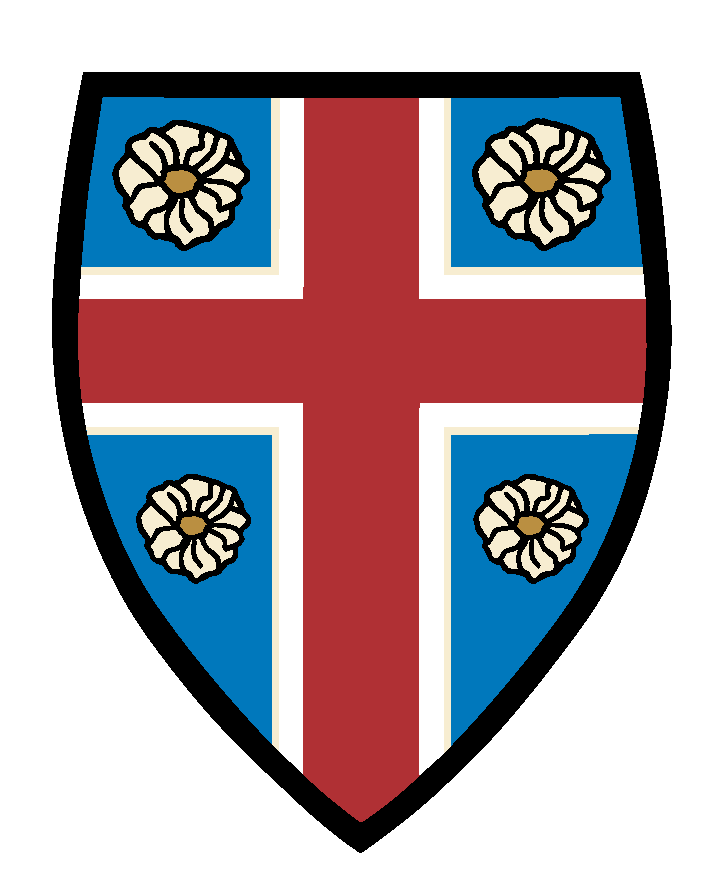December 6, Advent Day 9
Village Building Featured: Southern Pines Train Station
Reading: Psalm 42
Advent Reflection
Villager Featured: Advent Reflection from Monika Bargmann Brown
Christmas carols surround us during Advent, but none will sound in our Episcopal sanctuary until Christmas Eve. Can you call to mind any Advent carol, other than “O come, O come, Emmanuel”? For me, a carol honoring the Virgin Mary, “Lo How a Rose E’er Blooming”(#81), fits the last Sunday in Advent, but vicar Jane Bruce at St. David’s Laurinburg, where I selected hymns and anthems as music director and choir leader in the 1990s, said wait until Christmas. So the vicar and our organist John Williams, retired from Laurinburg Presbyterian, helped our small choir learn to appreciate the inspiring texts and music of the hymns of Advent.
In Advent, a new liturgical year begins, and Christians are called to prepare and hope, reflect and repent, in expectation of the miraculous birth of Jesus and also of his ministry, sacrifice, and return. Our four-week journey, through gifts of the Spirit marked by lighting candles on the Advent wreath, is guided by scripture lessons, which we experience for ourselves by singing the hymns. On Advent 1 (Hope), we may celebrate Christ’s glorious Second Coming at the end of time with the grand “Lo He Comes with Clouds Descending” (#57). For Advent 2 (Peace), we may pray for release from sin and fear with Charles Wesley’s “Come Thou Long Expected Jesus” (#66). On Advent 3 (Joy), we declare “Hark the Glad Sound, the Savior Comes!” (#72) and raise hosannas in welcome. For Advent 4 (Love) we may turn to a Basque carol recorded by the choir last fall: “The Angel Gabriel from Heaven Came” (#265), where Mary accepts her calling and praises the Lord.
On Advent 2, the Sunday of Peace, we are reminded in readings and hymns of Biblical prophecies. The Collect tells us that our “merciful God” has “sent prophets to preach repentance and prepare the way for our salvation,” and prays “Give us grace to heed their warnings and forsake our sins.” In the Gospel from Luke, John the Baptist begins his ministry. Prophetic Bible verses familiar to many of us from Handel’s Messiah are heard in readings and are echoed in hymns. The text of Hymn #67, written in Luther’s Germany and set to a French psalm tune by its Victorian British translator, begins by invoking the prophet Isaiah’s instructions to the Hebrew prophets: “Comfort, comfort ye my people, speak ye peace, thus saith our God,” for Jerusalem’s sins are forgiven. In verse 2 of the hymn, when prophecy continues with “the voice of one that crieth in the desert …calling us to new repentance,” we recognize John the Baptist. Indeed, Luke’s Gospel links John’s preaching to Isaiah’s words, by quoting the prophecy that starts “Prepare the way of the Lord, make his paths straight.” When these lines are read as John’s words, they predict not the Nativity but Jesus’s Baptism and ministry. As we sing, in the Baptist’s voice, verses 2 and 3 of the hymn, about valleys rising and hills bowing down and making rough places plain, we can “let our hearts be true and humble” and prepare to do our part: to comfort God’s people and spread God’s peace, in our world and our community, and in our hearts.
As you participate in Emmanuel services, in person or virtually, may each of you discover, in our Advent lessons, hymns, and anthems, and in the reverent organ pieces inspired by them, the season’s expressions of hope, peace, joy, and love. Sing along with these hymns and make their words and music your own. “After theology,” wrote Martin Luther “music is the only art capable of affording peace and joy of the heart.”
— Monika Bargmann Brown
Enjoy this music today from the Cathedral of St. John the Divine. The Cathedral Choir presented "Comfort, comfort ye my people" at the Cathedral's December 6 Service of the Word.
Upcoming Events with Emmanuel
Friday, December 10th: Fridays on the Fisk at 7pm, The Organ Studio of UNC School of Arts
Friday, December 17th: Bach’s Lunch at 12pm, Alina Cherkasova - soprano singer
Friday, December 24th, Christmas Eve:
3:00- Christmas Eve Eucharistic service with Children’s pageant
5:30-Choral Prelude
6:00- Christmas Eve Eucharistic service
8:00- Chorale Prelude
8:30- Christmas Eve Eucharistic Service


